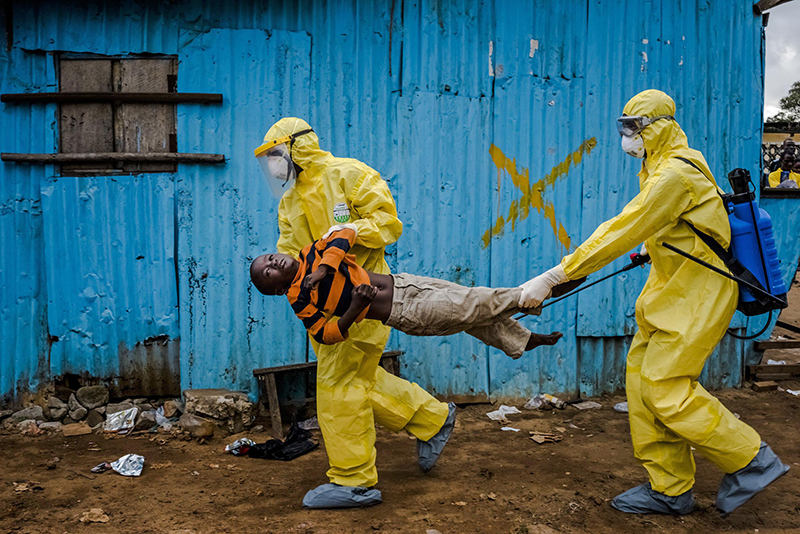
As the deadly Ebola virus continues to rapidly sweep across West Africa, researchers have announced they plan to test multiple drugs at once, in an umbrella study with a single comparison group to give fast answers on what works.
While new approach is "novel" for the thousands of scientists who have researched around the clock over the past few weeks, a speedy solution to the ongoing crisis is necessary, says Dr. Luciana Borio, head of the U.S. Food and Drug Administration's Ebola response team.
"We need to learn what helps and what hurts" and speed treatments to patients, she told Fox News.
This year alone, Ebola has killed a record 5,000 people in the West African countries of Liberia, Guinea and Sierra Leone, according to the United Nations Health Agency.
There is no treatment for Ebola which causes high fever and internal bleeding. The disease, which has a 21-day incubation period, spreads via bodily fluids and the bodies of its victims can be contagious.
However, several experimental ones such as ZMapp have been tried on a few patients, and scientists continue to test ten other vaccines that were developed for different conditions but may also fight Ebola.
"There's this tremendous urge to want to give people these experimental therapies" but it's crucial to make sure they don't do harm, said the FDA's Dr. Edward Cox.
Age also plays a key role in surviving Ebola, confirms a study published online by the New England Journal of Medicine. Patients over 40 were nearly four times more likely to die than younger ones were, a study in Guinea led by Dr. Robert Fowler at the University of Toronto found.
All of those participating in the umbrella study would get supportive care, such as intravenous fluids, then be assigned to receive one of several drugs or be in a comparison group, said Cox. Then, instead of waiting until a certain number of patients are treated to look at results, researchers will monitor results as they come in, pairing each person on a drug with someone from the comparison group to see if a pattern can be detected.
The National Institutes of Health developed this "learn as you go" plan "to allow a winner to be declared very early," Cox told the AP.
Christian humanitarian organizations such as Samaritan's Purse are also working to fight the Ebola crisis, recently sending a Boeing 747 stuffed with 90 tons of supplies to Liberia.
"The money we have raised for Ebola has been not as much as we have raised for hurricanes or tornadoes and those kinds of things, but at the same time the awareness of Samaritan's Purse has gone up, so we have seen a rise in income," Chief Executive Officer Franklin Graham said in an interview.
"I had one gentleman call up and said, 'Franklin, I just don't know how to spend it. I'm just going to give it to you,' and he wrote a check for a million dollars," Graham recounted. "Then he called back a few weeks later, and said, 'You know what, I want to do it again.' That's kind of unusual."
Although new Ebola cases in some parts of Liberia are falling, doctors fear it might be that "fewer people are seeking treatment or staying away out of anger over seeing loved ones' corpses burned instead of the traditional funeral practices that can spread the virus," said Dr. Armand Sprecher, a Doctors Without Borders physician.
"I would really like to believe that things are slowing down there but I'm not going to get too optimistic yet," he said.
However, having a treatment to offer could help doctors trace contacts of patients to limit the disease's spread and allow people to be "more willing to open the door" and answer questions if there is a drug that can help, Sprecher said.














